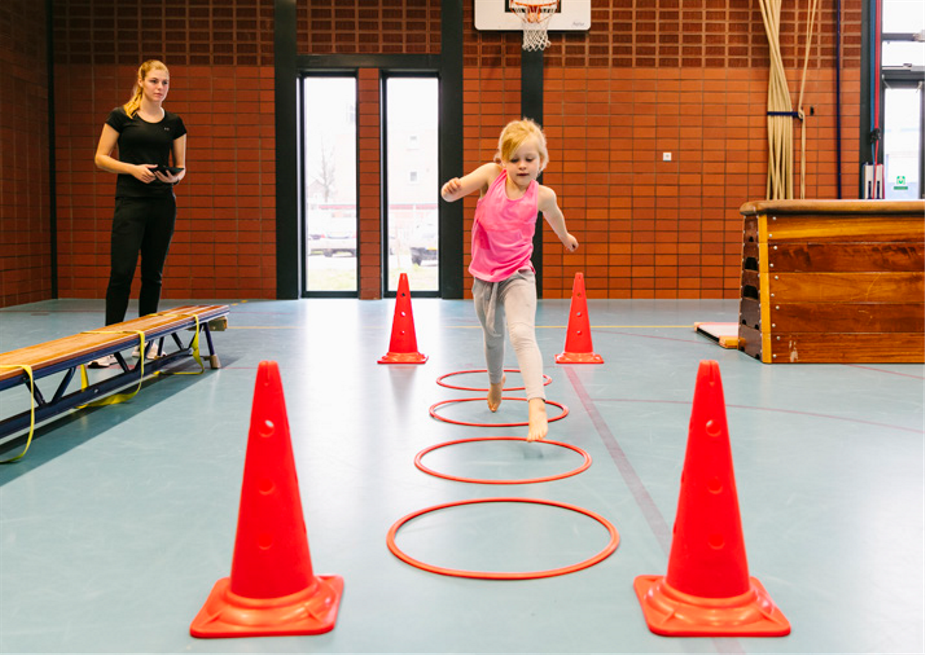A quarter of the children in the Netherlands do not exercise enough
30 March 2022
The Hague, 30 March 2022 - Of all primary school pupils, 24% scored insufficiently for movement skills last year. Specifically for the group of children ages 9-12, the number was even higher at over 33%.

The Hague, 30 March 2022 - Of all primary school pupils, 24% scored insufficiently for movement skills last year. Specifically for the group of children ages 9-12, the number was even higher at over 33%. This was the outcome of the annual study on motor skills of children between the ages of 4 and 12 conducted by The Hague University of Applied Sciences.
Children have been exercising less and less, which has led to a sharp deterioration in their motor skills. This is a worrying development that has been going on for some time and has negative consequences for the physical and mental health of children. With the implementation of the National Sports Agreement and the Prevention Agreement in 2018, almost all Dutch municipalities have joined forces with schools in recent years to reverse this negative trend.
Hardly any improvement
The survey results among children ages 9-12 are striking. In the 2021 Motor Skills Survey, 35% of 9-year-olds scored below average. The 12-year-olds don't fare much better when it comes to motor skills as 33% rates below average. Of the total group of primary school children between the ages of 4 and 12, 24% score below average. In 2020 and 2019, this was still 27%. So it seems to be going cautiously in the right direction, even though the 2021 study partly concerns a different group of children, there are clear differences per age group and we also see different results per province.
MQ Scan provides representative picture
The 2021 survey was conducted among 132,000 children between the ages of 4 and 12, across 722 primary schools. This makes it representative of the status of motor skills in primary school pupils throughout the Netherlands. The MQ Scan is used to test the motor skills of children. The test involves children doing an exercise course where they have to run, jump and hop. The MQ Scan is a valid and reliable measuring instrument developed by THUAS in collaboration with VU University Amsterdam.
In-depth research
Thanks to the National Sports Agreement and the Prevention Agreement, the importance of broad motor development is increasingly recognised and many municipalities and schools have started to improve their exercise programmes for children. However, the national figures don't show any significant improvements. The Hague University of Applied Sciences wants to know how this is possible and is conducting in-depth research into the quantity and quality of the available exercise opportunities. The Start Vaardig project, for example, researches how the motion skills of pre-schoolers can be improved in school, in their neighbourhood and within sports settings.
The Hague University of Applied Sciences
The Hague University of Applied Sciences prepares its students to become excellent professionals in their field. We also offer them an environment in which they can develop into global citizens, who are not afraid to view themselves and the world around them with a critical eye. They see where change is needed and dare to play a role in this. They receive support from motivated lecturers and professors. Professionals who embrace change, are internationally oriented and entrepreneurial. Who use their networks to develop contemporary degree programmes and conduct practical research. Based in the most international region of the Netherlands, we always collaborate with renowned companies at home and abroad. That makes The Hague University of Applied Sciences a unique knowledge institution with an ambitious goal: ‘Let’s change. You. Us. The world www.dehaagsehogeschool.nl.
Contact information for The Hague University of Applied Sciences
For more information, please contact the THUAS press officers. You can do this by phone, +31 (0)70 445 7549, or by email [email protected]
MQ Scan
Good motor skills are a basic requirement for an active lifestyle. The MQ Scan is a scientifically based and validated measuring instrument. The scan gives movement professionals a good and objective impression of the motor skills capacity of children (4 to 12 years). With this specific insight into motor skills, both movement and policy professionals can design better programmes with appropriate interventions. This allows the MQ Scan to make a difference and support children to adopt an active and healthy lifestyle. The MQ Scan has now been implemented in 127 municipalities and 1238 primary schools.
Contact information for the MQ Scan
For more information, please contact Ziggy Tabacznik. You can do this by phone, +31 (0)23 303 6808, or by email [email protected]